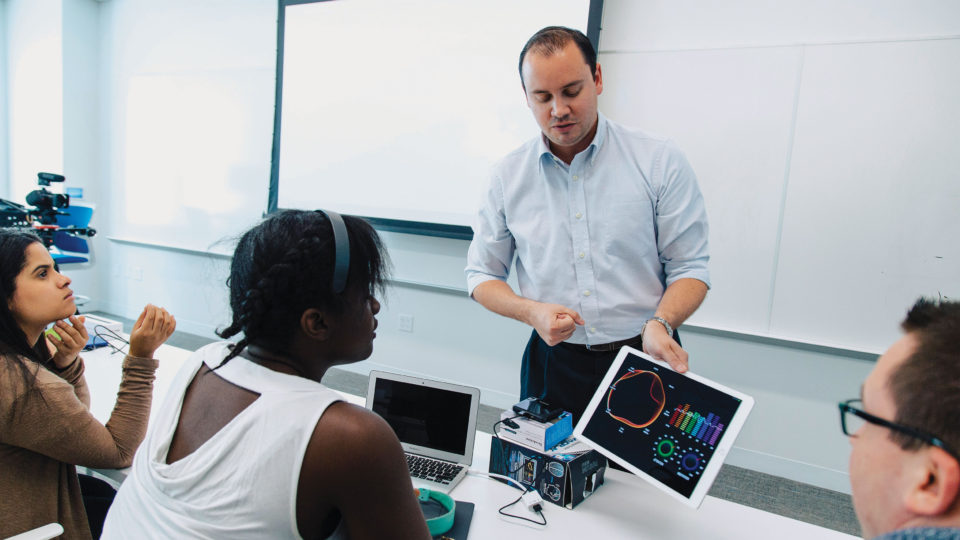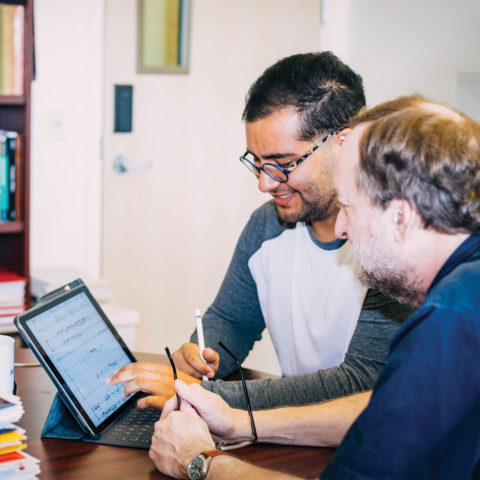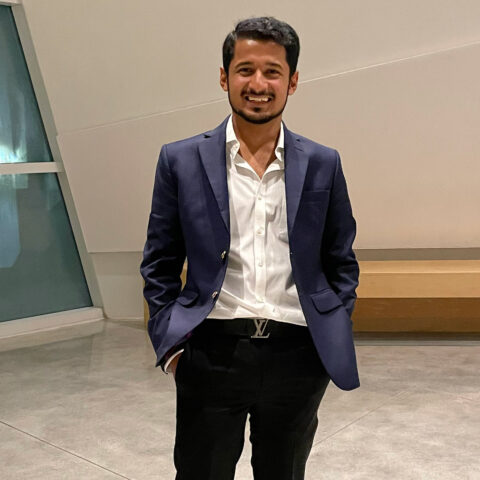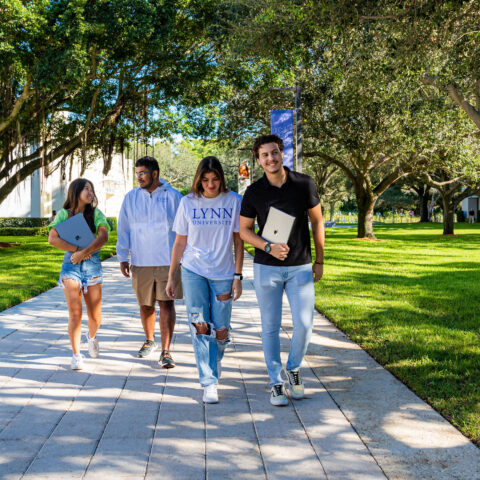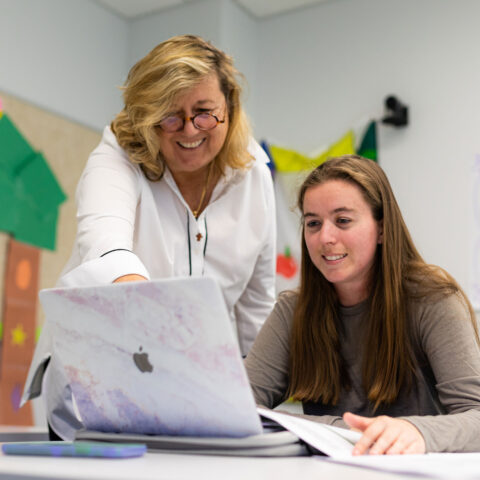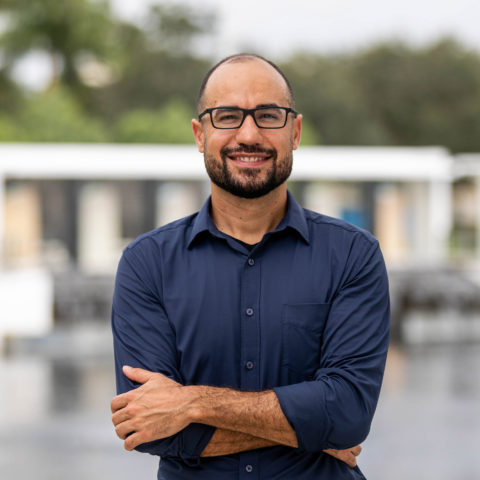It was no accident that Lynn 2020’s first priority was academics. After all, to build what plan author George Keller called a “modern house of higher education,” you must start with the foundation.
Faculty took on the first major task: reinvent Lynn’s core curriculum to more fully engage students and better prepare them for success in a global society.
“It was hard work,” President Kevin M. Ross said, “and they did it in one year.”
The result, the Dialogues core curriculum, capitalizes on two Lynn strengths—innovative teaching and small class size. Emphasizing in-depth reading and discussion, the Dialogues teach students to think critically, communicate effectively and solve problems creatively—skills highly prized by employers.
As part of the Dialogues, faculty created a new academic term called January Term or J-Term.
During its three weeks between fall and spring semesters, students explore subjects beyond their majors. Sophomores through seniors can study abroad to learn firsthand about language and culture. Or they can get a head start on the future by taking career and graduate school preparation courses. But in freshman year, everyone focuses on community service through the Citizenship Project J-Term course.


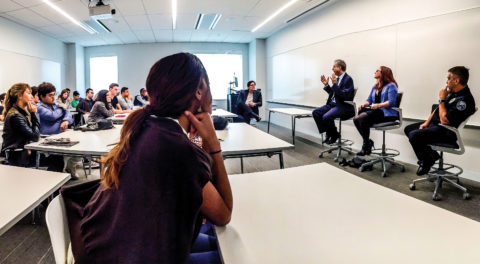
It’s a commitment dating back to Lynn’s early years as Marymount College, when faculty and students assisted children of migrant farm workers. Since then, our students and faculty have helped many more people in need around the world—including Haiti. During a Journey of Hope service trip to that nation in 2010, four students and two faculty members died during a massive earthquake.
“In many ways, it was a turning point for us as an institution,” said Gregg Cox, vice president for academic affairs. “It crystallized the importance of our students’ and faculty’s work abroad.”
“These six individuals are forever a part of our history and heritage,” said President Ross. “Our growing social impact efforts build upon their important work.”
Praise for the Dialogues
“Lynn’s newly articulated educational vision is inspirational. … Lynn has created a dynamic and coherent design for the college curriculum and for student accomplishment.”
Association of American Colleges and Universities
newsletter (Jan./Feb. 2010)
“Lynn University in Florida finds a way to answer general critiques of academic quality: a return to a retooled core curriculum.”
Inside Higher Ed
“Ramping Up Rigor” (Feb. 2, 2011)
iPad-powered learning
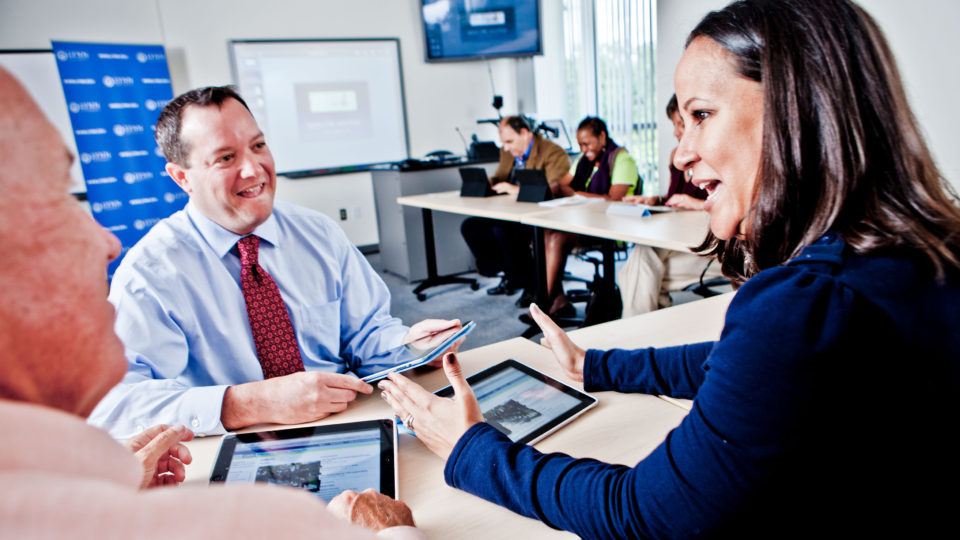
With the Dialogues established and new technology infrastructure enabled by debate preparations, Lynn was ready to move forward with its next innovation: iPad-powered learning.
Lynn’s leaders envisioned a modern learning companion that would deliver the Dialogues curriculum in a rich, interactive environment. After evaluating various devices, Lynn chose Apple’s iPad and tested it in a small pilot program.
“The technology made it easy for us to take the written word and enhance it with videos, quizzes and other things,” said Cox.
On Aug. 25, 2013, Lynn launched one of the most extensive tablet-based learning efforts in all of American higher education, handing out more than 600 iPads to incoming students. In one lightweight, robust device, students had their course materials, including free Lynn faculty-written textbooks, plus productivity-boosting apps.
Not only do Lynn’s digital textbooks deliver substantial cost savings to students (up to 90 percent, compared to traditional textbooks), they better engage students. Students no longer merely read content; they experience it. And the content is created by their professors specifically for Lynn’s curriculum.
The ability to create digital textbooks “has reinvigorated the faculty,” Cox said. “It’s given them the opportunity to go back to their discipline, delve into current research and produce something that’s timely and useful to their students.”
They’re doing so in increasing numbers. Forty-two Lynn faculty members have authored 60 texts, up from 15 faculty writing seven texts in 2013. To support their work, Lynn created the Lynn University Digital Press, the only university press in Florida and one of a few nationally dedicated to producing faculty-written e-books. Overseen by library director Amy Filiatreau, four staff members provide editing, design and copyright compliance.
Faculty have also tapped into the iPad’s potential to become more creative teachers. Each year, they learn new techniques and exchange ideas in faculty development sessions coordinated by Mike Petroski, Lynn’s director of faculty development and an Apple Distinguished Educator. To date, Lynn has offered more than 500 sessions. Nearly 30 faculty members have the certification Apple Teacher.
New learning models
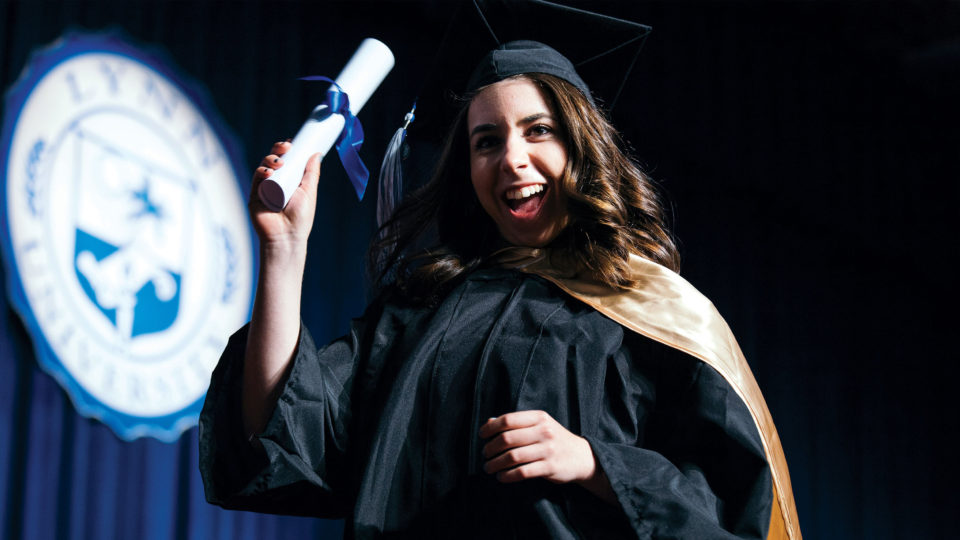
Lynn 2020 called for Lynn “to become a forerunner institution, a different kind of learning center, an independent, innovative 21st century university that is unusually devoted to preparing students for the future.”
Lynn’s answer? New learning models to better meet students’ needs—from expanded communication offerings and accelerated degree programs to academic partnerships offering specialized study in technology and social entrepreneurship.
“It’s all about offering students more opportunities,” Cox said, “and you won’t find programs quite like these elsewhere. We’re always looking for ways to add value to students’ education.”
In September, Lynn announced that it signed an agreement to purchase the assets of Digital Media Arts College (DMAC), providing students additional academic offerings in graphic and web design, game art, animation and visual effects. With the expansion, Lynn’s College of International Communication becomes the Eugene M. and Christine E. Lynn College of Communication and Design.
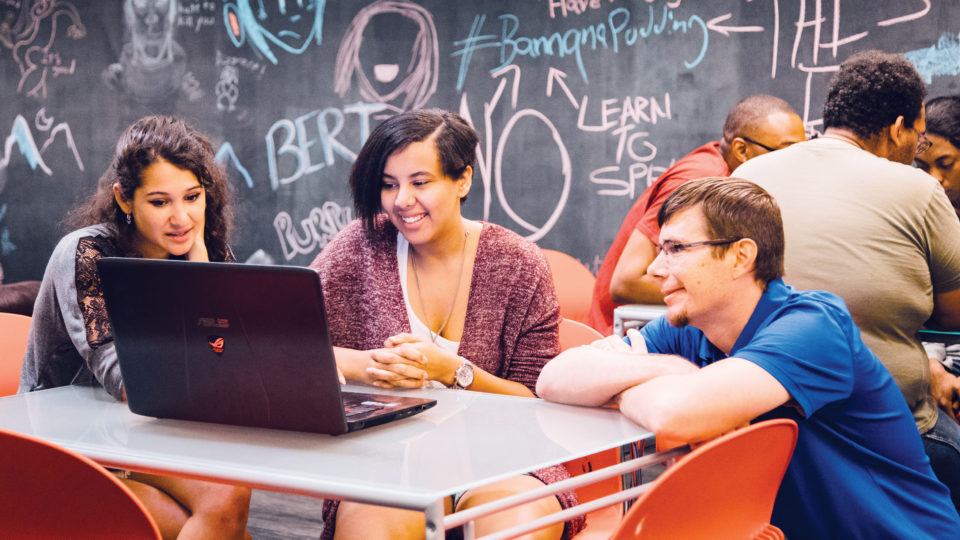
Lynn’s accelerated options include 3-year bachelor’s, 3+1 master’s and 3+3 law degree programs. More and more, highly motivated students are choosing them to save time and money. When it launched in 2009, the 3-year degree program enrolled 27 students. Today, more than 600 students are enrolled.
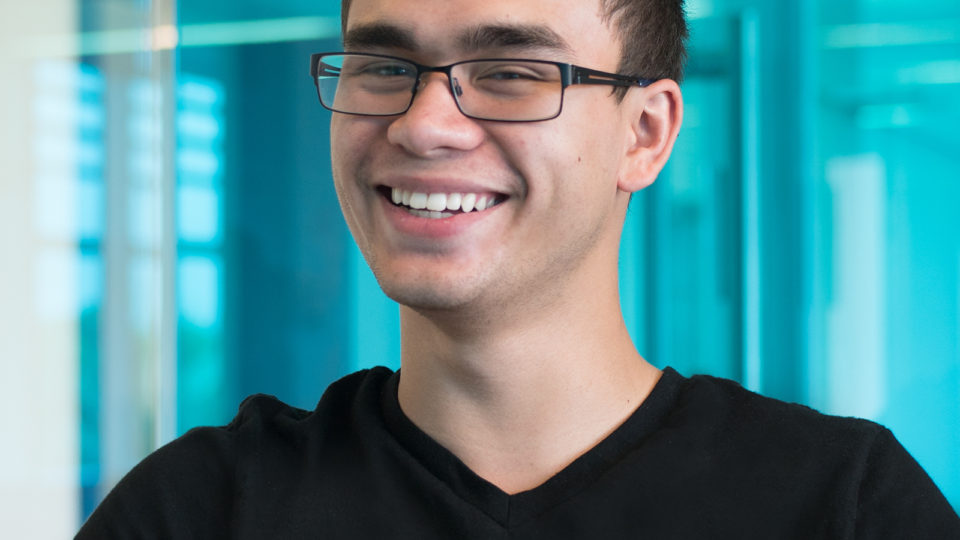
Winston Cunningham, a junior majoring in hospitality management, is one of them. “You save about $50,000 by doing the accelerated program,” he said, “and when you add the master’s degree, you save a ton of money. I can complete my education faster and start my career sooner.”
Through Lynn’s academic partnerships, students’ learning isn’t limited to the boundaries of campus. In addition to their Lynn degree, students gain high-demand job skills via these options:
Lynn+ Amani Institute
Students pursue an MBA in social innovation management, learning business and management skills at Lynn and taking part in Amani’s nine-month program: four months of on-site study in Brazil, Kenya and India, and five months of online study with international peers.
Lynn+ Watson Institute
Students earn a B.S. in entrepreneurship in 30 months, studying global development, social entrepreneurship and more via this partnership with Boulder, Colorado-based Watson.
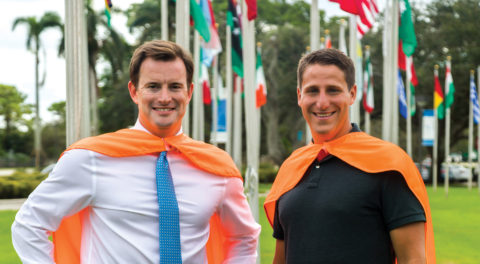
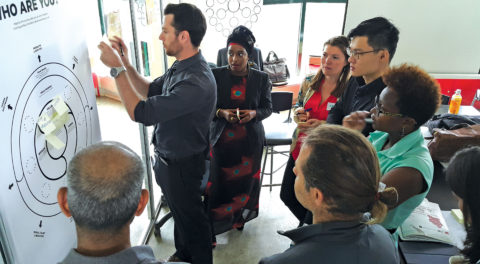
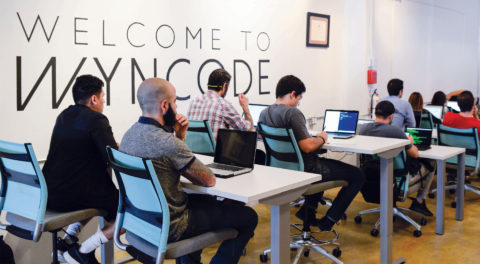
Expanded study abroad
Lynn 2020 outlined several initiatives for the university to build upon its international strengths. A key one was to “add programs abroad … for immersion in their respective languages and cultures.”
In 2012, Academic Affairs revamped Lynn’s study abroad program, creating the Center for Learning Abroad. Its mission: to ensure every student has the opportunity to study abroad and experience a new culture during their time here. The center offers short-term, semester and year-long programs worldwide, and coursework completed abroad can be applied toward students’ degrees at Lynn.
Working with leading professional partners, the center today offers more than 50 courses in 20 countries. Since the center’s creation, the number of students studying abroad has increased by 80 percent. In 2016–17, the center awarded more than $150,000 in study abroad scholarships.
Better, faster, cheaper
Lynn rethinks college textbooks
Lynn University’s digital textbooks benefit not only learning, but also students’ and parents’ wallets. In 2016–17, Lynn’s free faculty-written textbooks saved them an estimated $250,000.
It’s welcome relief. According to Bureau of Labor Statistics, the cost of traditional college textbooks has soared by more than 1,000 percent since 1977. More and more, students and families are feeling the pinch. Consider these statistics*:
- 49 percent of students say they’d choose one university over another if textbooks were free.
- Students say having no textbook expenses is more important than small class sizes, a high graduation rate or renowned faculty.
- 65 percent of students have opted out of buying a textbook due to high cost. Of those, 94 percent say they worried their grades would suffer as a result.
- 82 percent of students say they would perform better in a class if the textbook were free.
And for students who need printed texts? Lynn again has found a better way. The Lynn Library has built a collection of traditional print texts, including at least one copy of every required textbook. Students can check them out and scan or copy what they need, eliminating the need to buy the texts.
“This option is extremely popular,” said Amy Filiatreau, Lynn Library director. “These texts were checked out more than 3,100 times during 2016–17. Plus, the library is working with faculty to gradually replace print textbooks with open-access, freely accessible content or library-licensed e-books. Replacing just five traditional textbooks with these e-resources saved Lynn students about $70,000 last year alone.”
*Sources: Neebo Spring Textbook Survey, 2014; “Fixing the Broken Textbook Market,” U.S. PIRG Education Fund; Student Textbook and Course Materials Survey (March and April 2016), Florida Virtual Campus
